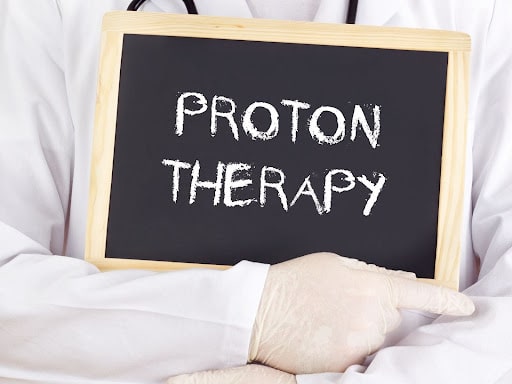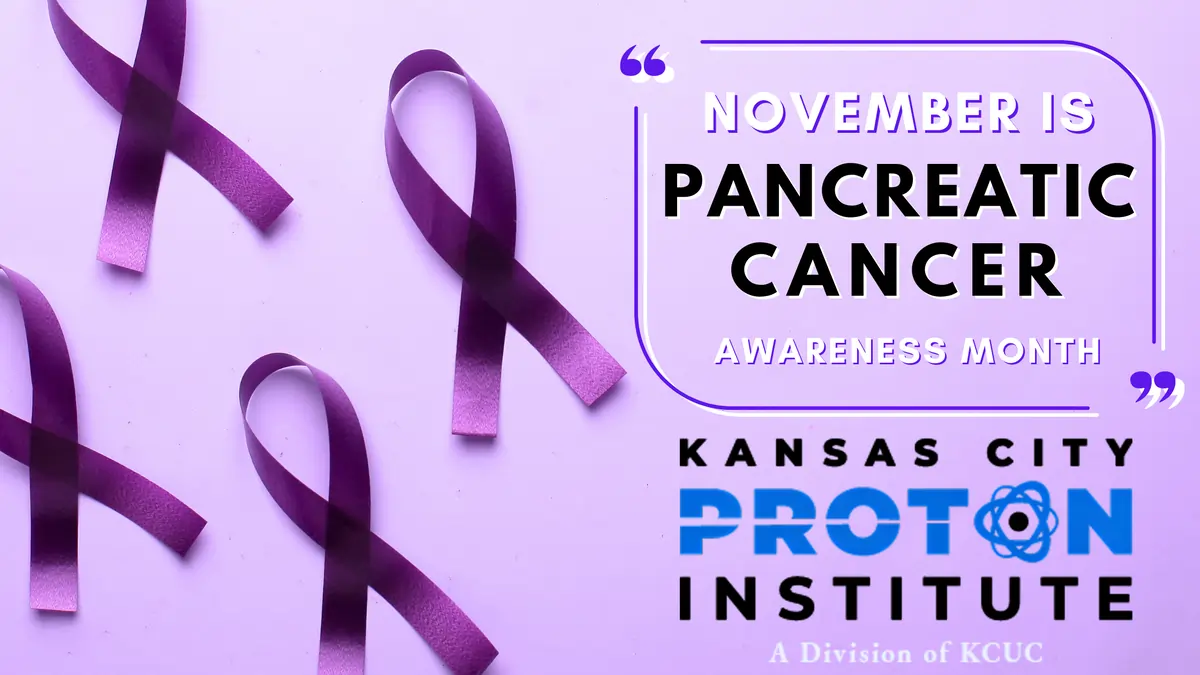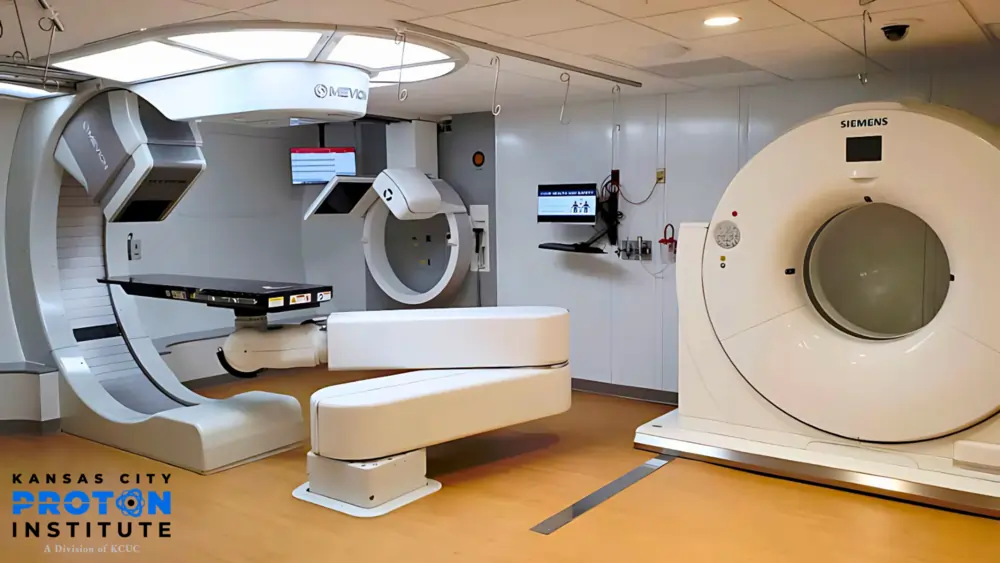
What Is Proton Therapy?
Advancements are constantly being made to improve outcomes and reduce the impact of treatment on cancer patients’ lives. One of the most exciting innovations in recent years is proton therapy. This cutting-edge approach offers a level of precision and effectiveness that distinguishes it from traditional X-ray or photon therapy, making it a promising option for patients battling various types of cancers.
Proton Therapy is a Form of Radiation Therapy
Proton therapy is a form of radiation therapy that utilizes protons, positively charged particles found in the nucleus of atoms, to target and destroy cancerous cells. Unlike X-rays or photons used in conventional radiation therapy, which pass through the body, damaging both cancerous and healthy tissues along the way, protons have a unique characteristic known as the Bragg peak. This phenomenon allows protons to deposit the majority of their energy precisely at the tumor site, sparing surrounding healthy tissues from unnecessary radiation exposure.
Proton Therapy vs. Traditional Radiation Therapy
The key difference between proton therapy and X-ray or photon therapy lies in its ability to deliver highly targeted doses of radiation to tumors while minimizing damage to adjacent healthy tissues. This precise targeting offers several advantages over conventional radiation therapy:
Reduced Risk of Healthy Tissue Damage
By precisely targeting cancer cells, proton therapy minimizes radiation exposure to nearby healthy tissues and vital organs. This significantly lowers the risk of short- and long-term side effects commonly associated with radiation therapy, such as fatigue, skin irritation, and damage to organs.
Fewer Side Effects–Short & Long-Term
The ability to spare healthy tissues translates into fewer side effects during and after treatment. Patients undergoing proton therapy often experience less fatigue, nausea, and discomfort compared to those undergoing conventional radiation therapy.
Reduced Likelihood of Cancer Recurrence
Unlike conventional radiation therapy, which may increase the risk of secondary tumors due to scatter radiation, proton therapy minimizes this risk by precisely targeting the tumor site and sparing healthy tissues.
Effective Treatment of Recurrent Cells
Proton therapy can effectively treat recurrent tumors, even in patients who have previously undergone radiation therapy. Its ability to deliver targeted doses of radiation makes it a valuable option for patients requiring re-treatment.
Improved Quality of Life
With fewer side effects and less damage to healthy tissues, patients often experience an improved quality of life during and after treatment. They can maintain their daily activities with minimal disruption, leading to a better overall experience.
Optimal Applications for Proton Therapy
While proton therapy offers numerous benefits across various types of cancer, its advantages are particularly pronounced in certain instances:
Brain Tumors
Proton therapy is highly effective in treating brain tumors, particularly those located near critical structures such as the optic nerves and brainstem. Its precise targeting minimizes the risk of damage to surrounding brain tissue, preserving neurological function.
Prostate Cancer
Prostate cancer treatment often involves radiation therapy, and proton therapy offers a compelling option due to its ability to spare nearby organs such as the bladder and rectum. This results in fewer urinary and gastrointestinal side effects compared to conventional radiation therapy.
Cancer of The Head or Neck
Tumors in the head and neck region can be challenging to treat due to their proximity to critical structures like the spinal cord and salivary glands. Proton therapy’s precision allows for optimal tumor targeting while minimizing damage to surrounding tissues, leading to improved outcomes and quality of life for patients.
Proton Therapy Revolutionizes Healthcare
Proton therapy represents a significant advancement in cancer treatment, offering precise targeting of tumors with minimal damage to surrounding healthy tissues. Its ability to reduce side effects, lower the risk of secondary tumors, and improve quality of life makes it a compelling option for patients across a wide range of cancer types. As technology continues to evolve, proton therapy holds the promise of better patient experiences and better outcomes. Proton therapy is transforming the landscape of cancer care.
Accessible Proton Therapy Options in Kansas City
According to the National Association for Proton Therapy, there are currently 44 proton therapy centers operating across the nation, with more in development. Kansas Citians are among the lucky few who have a choice of providers. Both the University of Kansas Cancer Center and Kansas City Proton Institute provide proton therapy. The main difference between the two locations is that The Proton Therapy Center at The University of Kansas Cancer Center is hospital-based, and the Kansas City Proton Institute (KCPI) is office-based.
Advantages of Office-Based Proton Therapy
Both hospital-based and office-based proton therapy provide the same level of medical treatment. So what are the main differences and why would a cancer patient choose one over another?
More Convenient, Less Time Wasted
One of the biggest advantages of office-based proton therapy is that it provides a more convenient treatment experience. The KCPI proton therapy treatment facility is located in Overland Park. This location provides patients south of downtown with a closer location, convenient parking, and easy building access, versus a large, confusing hospital setting with multiple buildings, parking lots, and offices. Plus, KCPI patients experience less disruption to their daily routine. They can spend more time working, being around support groups like family and friends, and participating in normal daily activities.
Office-Based Proton Therapy Is Less Expensive
While convenience is a big advantage, savings is the least known benefit of office-based proton therapy. Most patients are unaware that office-based proton therapy is more affordable than hospital-based proton therapy. Why? It has to do with insurance coverage. Proton therapy is covered by Medicare and many insurance providers. Hospital-based radiation oncology programs are legally allowed by these insurance companies and Medicare, to charge higher rates and facility fees than privately owned facilities are allowed to charge. This is primarily because hospitals have much higher overhead costs (buildings, staffing, expenses) than smaller, office-based clinics.
Because of this, treatments at office-based locations are often more cost-effective than those at hospital-based facilities. The fact that there is a difference is simply not common knowledge among patients because people don’t typically “shop” or price-compare for medical treatments.
KCPI is proud to be able to offer proton therapy at a lower cost and with more convenience for our patients. KCPI is the only office-based proton radiation facility in the central US. You can’t beat the combination of cutting-edge care, convenience, and lower costs. To learn more about treatment, give us a call!




